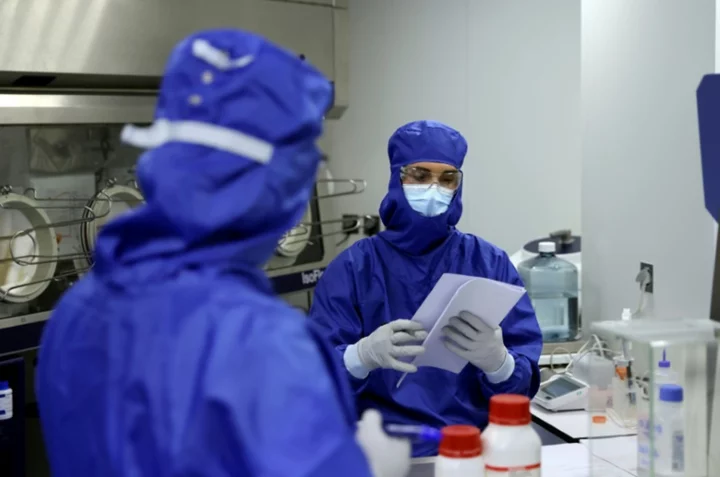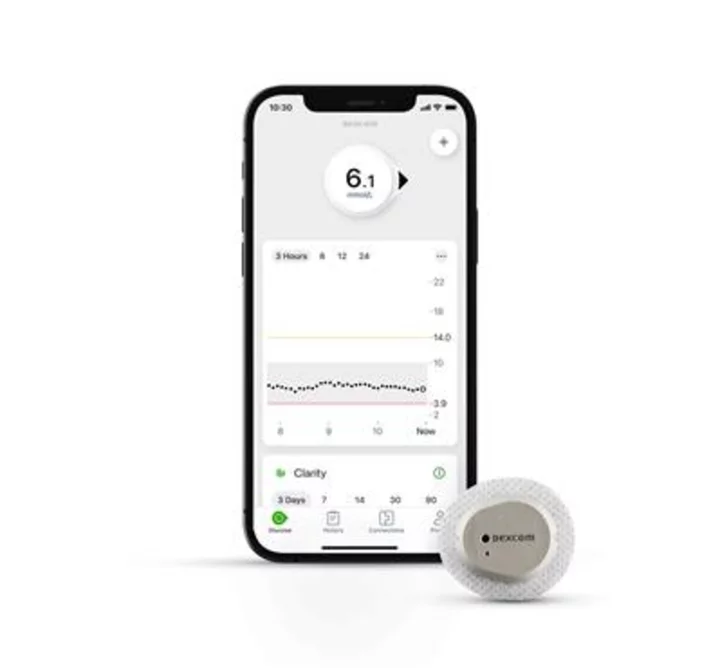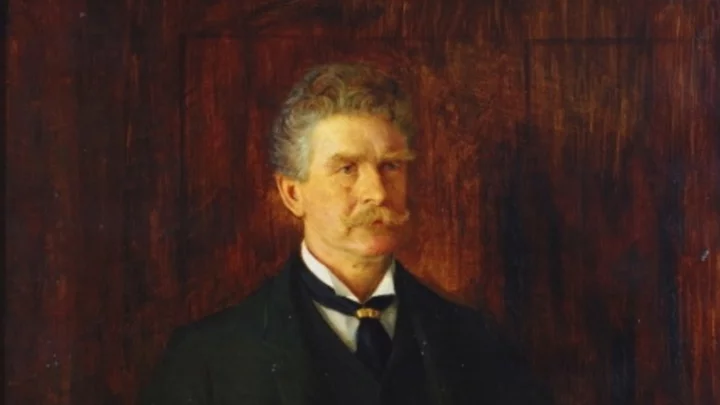‘Today’ show star Jill Martin diagnosed with breast cancer after testing positive for BRCA gene
Today show star Jill Martin has been diagnosed with breast cancer. On 17 July, the 47-year-old lifestyle contributor revealed on Today that she had been diagnosed with breast cancer, just one week after she tested positive for the BRCA gene – inherited gene mutations that can increase the risk of developing breast cancer. In an essay shared to Today.com, the TV presenter explained that she learned of her diagnosis on 26 June. Her doctor had recently suggested she get genetic testing due to her family history with breast cancer, which revealed she had tested positive for the BRCA2 gene. Martin elected to undergo preventive bilateral mastectomy, because she had a 60 to 90 per cent chance of developing breast cancer. However, less than a week later, an MRI scan revealed that she had already developed breast cancer. “I am telling this story now because I couldn’t go through months of operations, and start to recover both physically and mentally, without shouting from the rooftops telling everyone to check with their doctors to see if genetic testing is appropriate,” Martin wrote in her essay. The BRCA genes – an abbreviation for “BReast CAncer gene” – are two different genes that have been found to impact a person’s chances of developing breast cancer. There are two BRCA genes, BRCA1 and BRCA2, which normally help repair DNA breaks that can lead to certain cancers. However, when there is a mutation in the BRCA gene, it can no longer be effective in preventing breast cancer. According to the National Breast Cancer Foundation, the carrier of the mutated gene can also pass a gene mutation down to their offspring. It’s been found that people with a BRCA1 or BRCA2 mutation have a higher risk of being diagnosed with breast cancer. It’s estimated that 55 to 65 per cent of women with the BRCA1 mutation will develop breast cancer before age 70, while approximately 45 per cent of women with a BRCA2 mutation will develop breast cancer by age 70. Martin revealed that she will be having a double mastectomy, which will then determine her treatment plan moving forward. After her surgery, she also plans on having her ovaries and fallopian tubes as part of the preventative surgery process, because her chances of getting ovarian cancer are now 20 per cent higher, Martin said. “By the time I recover from my first surgery, I hope that many of you will know your results and can make proactive decisions with your doctors, families and loved ones,” she said. “That is the silver lining to this mess for me. It is what is keeping me going and giving me strength.” The Today show contributor explained that, although she had a clear mammogram test back in January, her mammogram still missed the presence of breast cancer that was later picked up by the MRI scan. “I am talking about this not to scare you, but to raise awareness so that maybe you can be tested and identify a BRCA or other genetic mutation earlier,” Martin wrote. “If I had known I was BRCA positive, I would have gotten screened more regularly, with an MRI alternating with my mammograms.” “What I didn’t know before this experience was that an MRI can pick up cancers that mammograms miss,” she continued. “So while my mammograms missed the presence of breast cancer, an MRI might have helped me catch it earlier.” Mammograms miss one in eight breast cancers, according to the American Cancer Society. For those who test positive for the BRCA gene, the American College of Obstetricians and Gynecologists recommendeds screening for breast cancer with an MRI starting at age 25, and mammograms at age 30. Martin added that earlier testing might have allowed her “the opportunity to have preventative surgery,” she said, “which is something I had planned to do only days before I found out that I actually had cancer.” She wrote: “Different people cope in different ways; for me, I am not hiding under the covers crying. Instead, I want to do everything I can to beat this and protect my family.” Read More Sarah Ferguson says late Queen’s corgis were unimpressed by her post-breast cancer surgery recuperation Country star Morgan Wade reveals plans for double mastectomy after testing for breast cancer gene Former NBC anchor reveals she underwent mastectomy after testing positive for gene that increases cancer risk Sarah Ferguson says corgis were unimpressed by her post-surgery recuperation Sarah Ferguson sweetly honours Queen Elizabeth’s memory amid cancer diagnosis Sarah Ferguson says breast cancer diagnosis was ‘scary’ for Eugenie and Beatrice
Today show star Jill Martin has been diagnosed with breast cancer.
On 17 July, the 47-year-old lifestyle contributor revealed on Today that she had been diagnosed with breast cancer, just one week after she tested positive for the BRCA gene – inherited gene mutations that can increase the risk of developing breast cancer.
In an essay shared to Today.com, the TV presenter explained that she learned of her diagnosis on 26 June. Her doctor had recently suggested she get genetic testing due to her family history with breast cancer, which revealed she had tested positive for the BRCA2 gene. Martin elected to undergo preventive bilateral mastectomy, because she had a 60 to 90 per cent chance of developing breast cancer.
However, less than a week later, an MRI scan revealed that she had already developed breast cancer.
“I am telling this story now because I couldn’t go through months of operations, and start to recover both physically and mentally, without shouting from the rooftops telling everyone to check with their doctors to see if genetic testing is appropriate,” Martin wrote in her essay.
The BRCA genes – an abbreviation for “BReast CAncer gene” – are two different genes that have been found to impact a person’s chances of developing breast cancer. There are two BRCA genes, BRCA1 and BRCA2, which normally help repair DNA breaks that can lead to certain cancers. However, when there is a mutation in the BRCA gene, it can no longer be effective in preventing breast cancer.
According to the National Breast Cancer Foundation, the carrier of the mutated gene can also pass a gene mutation down to their offspring.
It’s been found that people with a BRCA1 or BRCA2 mutation have a higher risk of being diagnosed with breast cancer. It’s estimated that 55 to 65 per cent of women with the BRCA1 mutation will develop breast cancer before age 70, while approximately 45 per cent of women with a BRCA2 mutation will develop breast cancer by age 70.
Martin revealed that she will be having a double mastectomy, which will then determine her treatment plan moving forward. After her surgery, she also plans on having her ovaries and fallopian tubes as part of the preventative surgery process, because her chances of getting ovarian cancer are now 20 per cent higher, Martin said.
“By the time I recover from my first surgery, I hope that many of you will know your results and can make proactive decisions with your doctors, families and loved ones,” she said. “That is the silver lining to this mess for me. It is what is keeping me going and giving me strength.”
The Today show contributor explained that, although she had a clear mammogram test back in January, her mammogram still missed the presence of breast cancer that was later picked up by the MRI scan.
“I am talking about this not to scare you, but to raise awareness so that maybe you can be tested and identify a BRCA or other genetic mutation earlier,” Martin wrote. “If I had known I was BRCA positive, I would have gotten screened more regularly, with an MRI alternating with my mammograms.”
“What I didn’t know before this experience was that an MRI can pick up cancers that mammograms miss,” she continued. “So while my mammograms missed the presence of breast cancer, an MRI might have helped me catch it earlier.”
Mammograms miss one in eight breast cancers, according to the American Cancer Society. For those who test positive for the BRCA gene, the American College of Obstetricians and Gynecologists recommendeds screening for breast cancer with an MRI starting at age 25, and mammograms at age 30.
Martin added that earlier testing might have allowed her “the opportunity to have preventative surgery,” she said, “which is something I had planned to do only days before I found out that I actually had cancer.”
She wrote: “Different people cope in different ways; for me, I am not hiding under the covers crying. Instead, I want to do everything I can to beat this and protect my family.”
Read More
Sarah Ferguson says late Queen’s corgis were unimpressed by her post-breast cancer surgery recuperation
Country star Morgan Wade reveals plans for double mastectomy after testing for breast cancer gene
Former NBC anchor reveals she underwent mastectomy after testing positive for gene that increases cancer risk
Sarah Ferguson says corgis were unimpressed by her post-surgery recuperation
Sarah Ferguson sweetly honours Queen Elizabeth’s memory amid cancer diagnosis
Sarah Ferguson says breast cancer diagnosis was ‘scary’ for Eugenie and Beatrice









